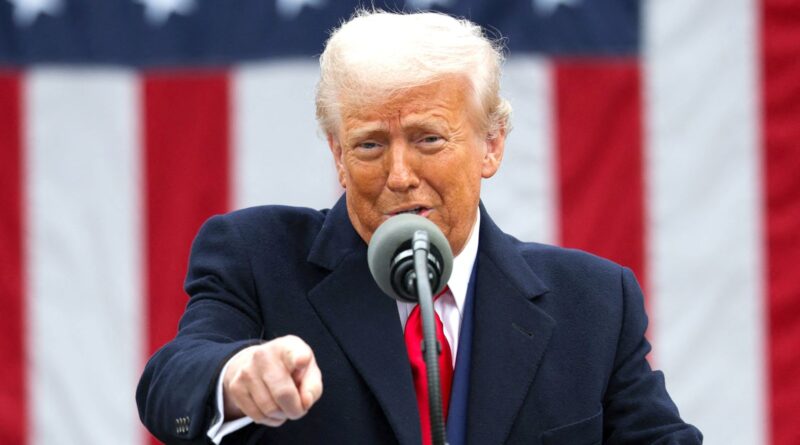Trump’s Tariffs: A Power Play Beyond Economics | US News
Falling stock markets, disintegrating global orders, and destructive trade wars leave economists frantically trying to catch up.
Yet, as we attempt to decipher Donald Trump’s tariff deluge, traditional economic theory can only explain so much. Ultimately, this is likely about something far more fundamental.
Power.
Grasping this concept might be vital to understanding how the world reacts.
Indeed, economics provides insight into the ramifications. The global economy has shifted dramatically, overturning decades of established practices.
Rather than facilitating world trade, America is instigating a trade conflict. The effects will be felt universally.
Donald Trump claims he is addressing grievances and correcting injustices. America has been victimized, exploited, and mistreated by the global trading system.
However, do not let the theatrics distract you – if you believe this is solely about economics, you might be overlooking a crucial point.
Primarily, tariffs grant Donald Trump power. They instill fear in both allies and adversaries, influencing governments and corporations alike.
This president operates like a medieval ruler or a mafia boss.
This dynamic explains why we have witnessed what one statesman referred to as a parade of sycophants visiting the White House, ranging from global leaders to industry giants.
The line will only grow longer as they intensify their efforts for favorable treatment under Trump’s tariffs, with Sir Keir Starmer among them.
Trump employs similar strategies domestically, using his presidential authority to extract concessions and silence dissent among corporate America, academia, and the US media. Those who provide favors are often spared from repercussions.
Critics argue he seeks to amass a degree of power for the executive branch that the founding fathers intentionally aimed to prevent.
Regardless of its validity, this same tactic of division and intimidation is now being applied on a global scale, courtesy of tariffs.
Every nation will seek exceptions, but they will be on Trump’s terms. Those who retaliate may find themselves facing escalation.
This presents a harsh reality for governments, including our own, as they strategize their next steps.
The temptation will be to concede to Trump’s demands to protect their economies, yet such compromises could invite ever more jeopardy as time progresses.
Read more:
Do Trump’s tariff figures truly add up?
Trump’s 10% tariffs on an island home only to penguins
Malcolm Turnbull, the former Australian prime minister who coined the conga line analogy, expressed it this way: “Essentially, all the international leaders I’ve observed who have tried to appease Trump have ultimately been marginalized. The truth is if you appease bullies, whether in global politics or at school, it only leads to more bullying.”
Trading partners may find ways to lessen the effects of these tariffs through negotiation, but this could inadvertently prompt this unconventional president to demand even more concessions.
In the end, the world will require a more trustworthy superpower than the current scenario offers.
With such a president at the helm, America cannot be relied upon.
In terms of security, stability, and prosperity, allies will need to look after their own interests.
And they will have to cultivate new partnerships. If Washington becomes untrustworthy, Beijing may provide an alternative.
America First will increasingly suggest America in isolation.




